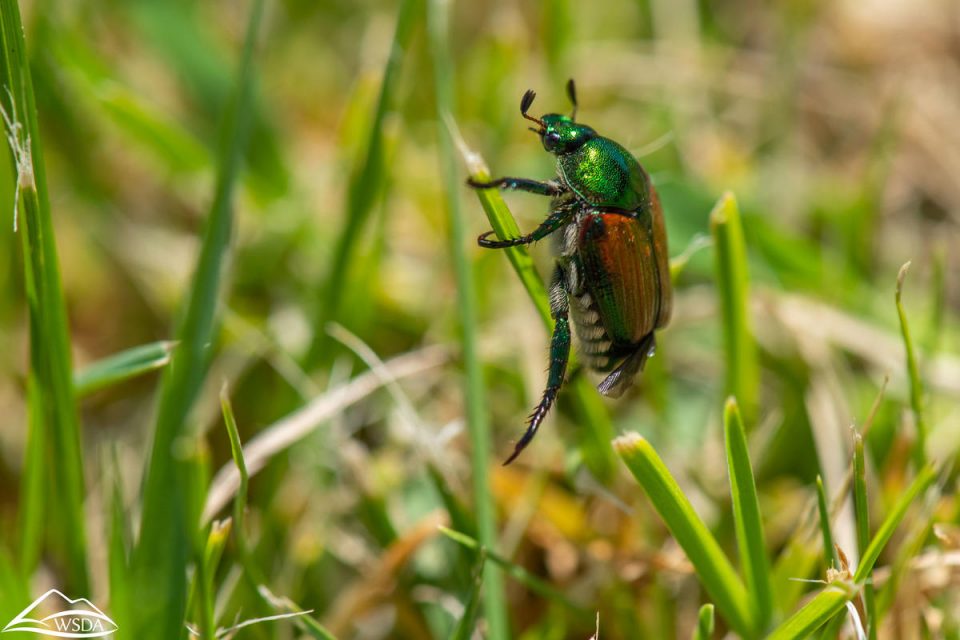A successful eradication effort in Washington state would require significant community buy-in. The state Agriculture Department must have consent from 3,500 households within the 49-square-mile area around Grandview where beetles were spotted during trapping last year to spray the pesticides Acelepryn G and Acelepryn on fields, parks, lawns and flower beds.
For the past two months, the department has engaged in a massive outreach effort that has included mailers, virtual and in-person open houses and door-to-door visits to homes located in an area with the highest number of beetle collections.
As of Tuesday, more than 500 households agreed to spraying. Outreach efforts will continue for several more weeks leading to the start of the eradication process, which will go from April through September.
Acosta said most have generally understood the need for the eradication effort. However, many have voiced concerns about the health impacts of spraying pesticides on their home lawns.
To address the issue, the Agriculture Department has worked with the Washington State Department of Health, which has a designated website to explain the importance of stopping the spread of Japanese beetles and provides information about the two pesticides.
The Department of Health says both pesticides have an excellent safety record and lists additional precautions one could take, including avoiding sprayed areas for several hours and washing any clothes that come into contact with the pesticides.
The Agriculture Department would also continue trapping adult beetles to monitor whether the outbreak has spread. To determine this, the department would expand the boundary of the trapping area and increase the number of traps used. The trapping season goes from May to October, coinciding with the peak flight of adult beetles.
The Agriculture Department won’t know the initial effectiveness of the eradication effort until at least the end of the 2023 trapping season. By then, the department can factor in the 2022 eradication season, Acosta said.
Meanwhile, the department hopes to complete rule-making on an interior quarantine, which would regulate the agricultural items transported out of the infected area in the coming months. The effort aims to limit the beetle’s spread while the state works on eradicating the beetle population in Grandview.
Part of that process is looking into potential economic impacts on businesses.
For example, the proposed language for hops says that any crop transported out of the quarantine area would have to be sprayed with Coragen, an insecticide known to be effective in controlling pests. That creates an additional expense in labor and materials for growers already experiencing increased production costs, said Elliot of the Hop Growers of America.
As a result, the organization has proposed an option to waive the requirement to spray Coragen for hops harvested from a field free of Japanese beetles, Elliot said.
Still, even if hops within the area are required to be sprayed with Coragen as part of the quarantine, there is some good news: The pesticide’s use is allowed in countries that import Washington-grown hops, Elliot said.
And the use of the pesticide has proved to be harmonious with other integrated pest management efforts in areas with a similar population of beetles.
“You don’t want to introduce a new problem,” she said.


